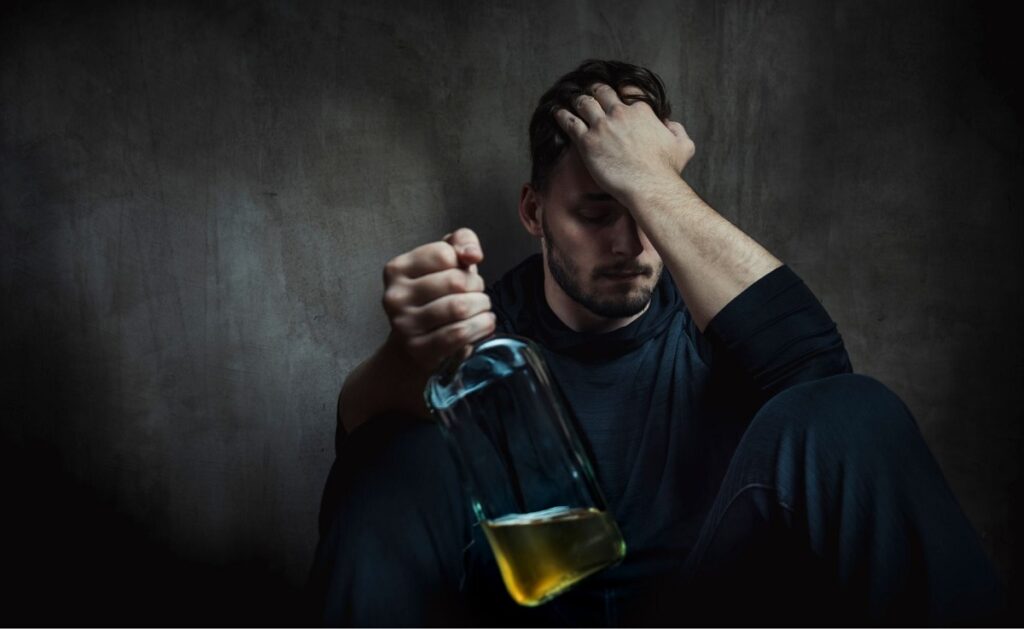0484 844 839 or Book a FREE Clarity Call HERE

Binge drinking, defined as consuming a large amount of alcohol in a short period, is a widespread issue today and leads to various negative consequences. People who engage in binge drinking often experience health problems, financial difficulties, and relationship issues. For those struggling with alcohol addiction, it can feel like being trapped in an endless cycle. However, there is hope through a method gaining popularity in addiction recovery – Hypnosis for Binge Drinking offered by Stellar Hypnotherapy.
Hypnosis is a method that uses the power of suggestion to change how people think and act. During hypnosis, a person is guided into a relaxed state where their mind is more open to positive suggestions. This can help them make changes in their behavior, such as reducing or stopping binge drinking. Over the past few years, more people are recognizing hypnosis as a helpful tool for overcoming addictions, including alcohol addiction.
In this blog post, we will look at how hypnosis works and why it can help beat alcohol addiction. We will discuss what happens during a hypnosis session, how it helps change thought patterns and share the success stories of people who have used hypnosis to overcome their drinking problems. If you or someone you know is struggling with binge drinking, this information could be the key to breaking free from addiction.
What is Hypnosis for Binge Drinking?
Hypnosis is when your mind is focused and more open to suggestions. It happens naturally to all of us multiple times a day. For example, when you daydream or get absorbed in a book, you are hypnotic. During hypnosis, your mind can take in ideas and suggestions more quickly, so it’s often used to help people change their habits or behaviours.
Using hypnosis to change habits can be very effective because it helps you focus on positive changes in a relaxed state. When you’re hypnotized, you can concentrate deeply on the suggestions given, such as feeling calm or resisting unhealthy urges. This makes it a useful tool for breaking bad habits like smoking or overeating. By being in this state of focused attention, your mind can work on making these changes more naturally and effectively.
Understanding the Mechanism Behind Using Hypnosis
Binge drinking is often a coping mechanism for dealing with stress, anxiety, and other underlying issues. Through hypnosis, the root causes of the addiction can be addressed by accessing the subconscious mind. This is where our beliefs, thoughts, and behaviors reside. By changing these underlying thought patterns, hypnosis can help break the cycle of binge drinking and free individuals from their addiction.
During a hypnosis session, a trained therapist will guide the person into a relaxed state and use various techniques to rewire their thoughts and behaviors towards alcohol. This can include visualization, positive suggestions, and reinforcement of healthy coping mechanisms. The goal is to replace negative patterns with positive ones and strengthen the individual’s willpower to resist the urge to binge drink.

Natural Ways to Overcome Binge Drinking
Hypnosis provides a different way to treat addiction by dealing with why it happens, not just how it shows up. It’s safe and gentle and can work well with other treatments. Using hypnosis for excessive drinking offers several advantages:
First, it gets to the heart of the problem by exploring the reasons behind the addiction. This helps create lasting change by addressing the root causes rather than just managing the symptoms. Second, hypnosis is a non-invasive method, meaning it doesn’t involve surgery or medication. This makes it a safe option for many seeking alternative treatments. Lastly, hypnosis can complement other forms of treatment, such as therapy or support groups. By combining these approaches, individuals can receive comprehensive care that addresses both the psychological and physiological aspects of their addiction.
Rewires the Subconscious Mind
The subconscious mind is the part of our brain where our deep beliefs and habits live. It controls many of our actions and thoughts without us even realizing it. Hypnosis helps a therapist reach this part of the mind. During hypnosis, the therapist can suggest new, positive ideas and habits. This can help change the way a person thinks about and reacts to alcohol.
By changing the subconscious mind, a person can start to have a healthier relationship with alcohol. They can break free from the harmful pattern of binge drinking. Hypnosis makes it easier to replace negative thoughts and habits with positive ones. This change can lead to a happier, healthier life without the hold of alcohol addiction.
Encourages a Positive Mindset
One of the main parts of hypnosis is using positive suggestions and visualization. This means that during a hypnosis session, a therapist helps people imagine positive outcomes and think good thoughts about themselves. For people who struggle with binge drinking, this can make a big difference. By focusing on positive ideas, they start to see themselves in a better light and feel more confident about their ability to stay sober.
Positive suggestions and visualization help change a person’s thoughts about drinking and self-worth. When people believe they can stay sober and see themselves as strong and capable, they are more likely to avoid drinking and not relapse. Hypnosis strengthens these positive thoughts, making it easier for individuals to stay on the right path and avoid falling back into old habits.
Builds Willpower and Self-Control
Hypnosis can help people strengthen their willpower and control over their actions. During hypnosis sessions, they visualize themselves being in control and resisting the urge to binge drink. This mental practice can make them feel more confident and capable of making better choices when faced with alcohol. By repeatedly seeing themselves succeed in their mind, they build the skills needed to handle real-life situations more effectively.
This approach is advantageous in social settings where alcohol is present. Hypnosis helps individuals stay strong and stick to their goals, even when others are drinking around them. By improving their ability to control themselves and make good decisions, they are better prepared to handle these difficult situations without giving in to the temptation to binge drink.
Addresses Underlying Issues
Binge drinking often stems from deeper problems like stress, anxiety, or trauma. These underlying issues can drive people to drink excessively as a way to cope. Hypnosis is a powerful tool to help individuals uncover and address these hidden problems. During hypnosis, a trained therapist helps the person enter a relaxed state, making it easier for them to understand their thoughts and feelings. This process helps identify the root causes of their binge drinking, allowing for a more complete and effective treatment.
Individuals can achieve lasting results by dealing with the underlying issues through hypnosis. Instead of just treating the symptoms, they work on the actual problems that lead to excessive drinking. This approach helps them develop healthier coping mechanisms and a better relationship with alcohol. As a result, they are more likely to maintain their progress and avoid falling back into harmful drinking habits. Hypnosis offers a holistic and long-term solution for overcoming binge drinking and building a healthier life.
Non-Invasive and Natural Approach
Hypnosis stands out as a unique method for treating addiction because it is non-invasive and natural. Unlike other treatments that might rely on medications, hypnosis doesn’t involve taking any drugs or substances. This makes it a safer choice for people with other health issues, as there are no concerns about interactions or side effects from medication.
Hypnosis has no negative side effects, which is a significant advantage. It can also be combined with other treatments, offering a more comprehensive approach to overcoming addiction. By working together with therapies like counselling or support groups, hypnosis can enhance the overall effectiveness of the treatment plan, helping individuals achieve better and longer-lasting results.
Conclusion
Hypnosis offers a unique approach to treating addiction because it is gentle and natural. Unlike medication-based treatments, hypnosis does not involve taking drugs. This makes it safer for individuals with other health conditions, as there is no concern about potential interactions with medications or the risk of side effects.
One big benefit of hypnosis is that it doesn’t cause any bad side effects. This is very important because it lets people get treatment without worrying about feeling bad. Hypnosis can complement other therapies, such as counselling or participation in support groups. Combining these approaches can enhance treatment effectiveness, supporting long-term recovery and well-being.
Hypnosis, when combined with other treatments, such as those offered by Stellar Hypnotherapy, helps create a complete approach to recovering from addiction. Individuals can benefit from a holistic treatment plan that addresses their physical, emotional, and social needs by working with counsellors and support networks. This integrated approach not only aids in overcoming immediate challenges but also fosters sustained recovery over an extended period.
Hypnosis stands out as a therapeutic option for addiction due to its gentle, drug-free nature and minimal risk of side effects. By integrating with other therapies, hypnosis supports a holistic approach to treatment, enhancing overall effectiveness and long-term success in managing addiction.
